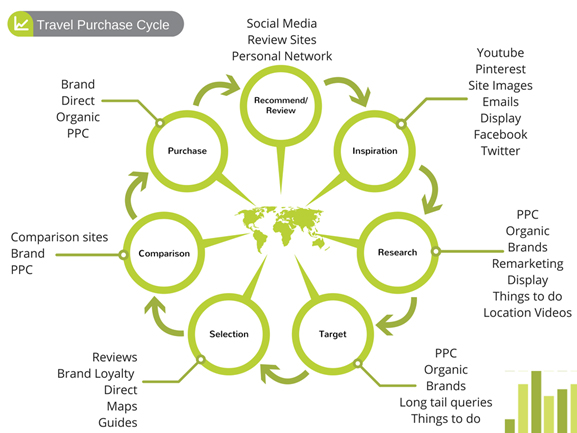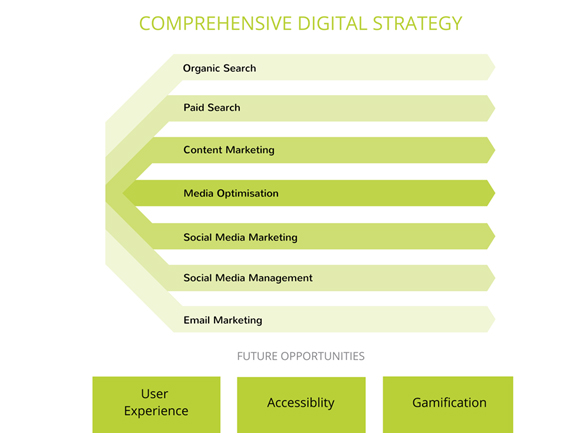The travel sector is the perfect candidate for a cross-platform digital strategy as potential customers visit websites at different points within the buying cycle, from different devices, platforms, and different media etc. From researching a potential holiday location, to specifically searching for accommodation and flights to book within a pre agreed travel date, users visit travel sites for a number of reasons.
In order to provide an effective strategy for this market we need to optimise as many channels as possible, however due to the highly competitive niche, organic optimisation is crucial for capitalising on the other channels.
A report from IgnitionOne looked at the conversion paths and latency for the travel industry and found that on average, customers interacted with 5.6 media exposures before converting with an average latency to conversion of 2 weeks. This illustrates the large window to capture potential customers and the need for a multi channelled approach.
Outside of the average, nearly 20% of people saw over 10 media exposures before their purchase and the last exposure prior to purchase was almost always through organic search. However, it was noted that conversions which were initiated with a paid search click and ended in an organic search visit had the highest Average Order Value, illustrating the co-dependencies in platform performance.
Taking into consideration: the two week conversion window, 20% of customers viewing over 10 media exposures and the spread of customers originating from multiple channels, presents a mass of potential touch points within each section of the buying cycle, and I believe that providing a strategy encompassing these areas is crucial to achieving success within the travel industry.

In another report, this time by Kenshoo and Experian, it has been illustrated how paid social on Facebook can work alongside a traditional PPC adwords campaign to increase total conversions by 19%, conversion rate by 11% and reduce the actual cost per acquisition by 10%.
This goes to show how other channels and Facebook advertising in particular can positively impact a paid search campaign, and it is well worth experimenting with to find the “sweet spot” where the social spend achieves the most cross-channel impact; neither too low to make an impact or too high to reduce the yield.
Within a highly competitive industry, I believe that travel brands need to distinguish themselves and lead the way in user experience, accessibility and gamification. This should be on top of a comprehensive organic and paid search campaign, content resource marketing including image and video optimisation, social media marketing and social media management / customer services.
Along with these attraction based campaigns, a solid and beneficial customer retention campaign within email marketing should promote repeat sales and foster customer loyalty to help fight the ever growing price sensitive comparison mind-set.






